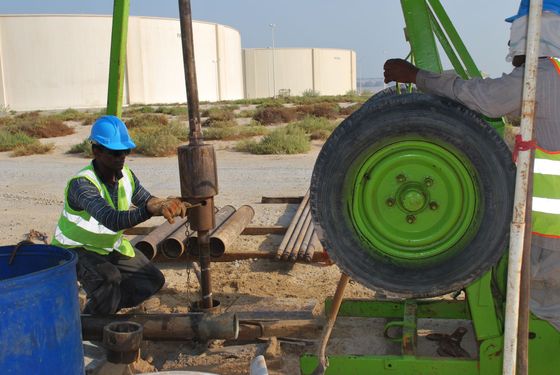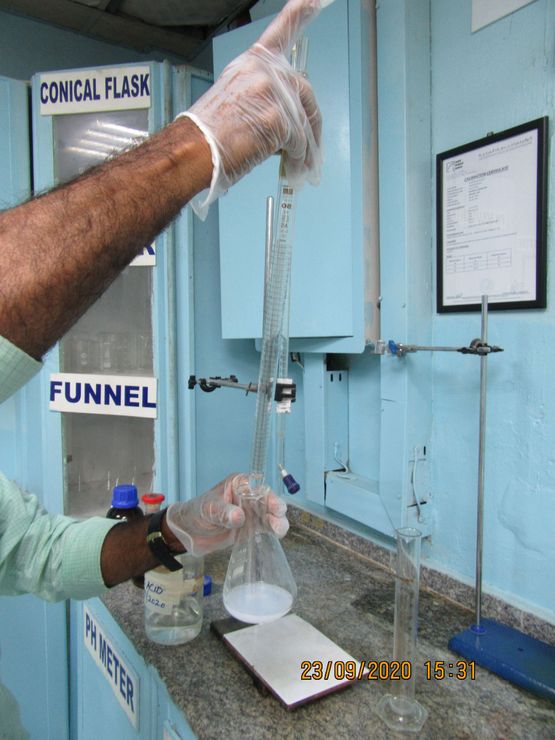Service #1

Soil investigation is to carry out physical testing on site to understand the ground conditions for geotechnical design for foundations, retaining walls and soil improvement. It allows the engineer to work out safe and economical design of a project and inform the construction engineer about the material and conditions he will encounter in the field.
Its objective is to determine engineering properties of soil, to select a suitable type of foundation, to estimate the probable and maximum differential settlements and mainly to find the bearing capacity of the soil, which could be used in the engineering design and specifications of the proposed construction projects like building, infrastructures, villas, etc.
The site works involves auger boring including sampling and Standard Penetration Test (SPT), trial pits, ground water level measurement, and followed by laboratory analysis for particle size distribution and chemical analysis.
Service #2

The concrete is required to support heavy load in all structure, therefore, it is a must to be tested.
The compression test is used to determine the material behaviour under a load. The maximum stress a material can sustain over a period under a load (constant or progressive) is determined. Compression testing is often done to a break or to a limit. The concrete samples could be in the form of cubes or cylinder, and different types of blocks, interlocks, tiles, kerbstone and so forth.
In concrete investigation, some non-destructive testing could be provided like Schmidt Hammer, Ultrasonic Pulse Velosity and Half Cell Potential Mapping, while other testing are categorized as destructive like drilled core test and compression while some durability test could be applied also like Water Absorption, Water
Service #3

The common chemical analysis for Soil, Water, Aggregates and Concrete, for construction materials, are their chloride content and sulphate content which their anions are considered as secondary contaminants. The determination of chloride and sulphate is important since these anions can have a corrosive impact on concrete structures.
There are two methods in determining the chloride and sulphate content, one is by water-soluble chloride content and water-soluble sulphate content, and the other is by acid-soluble chloride content and acid-soluble sulphate content.
